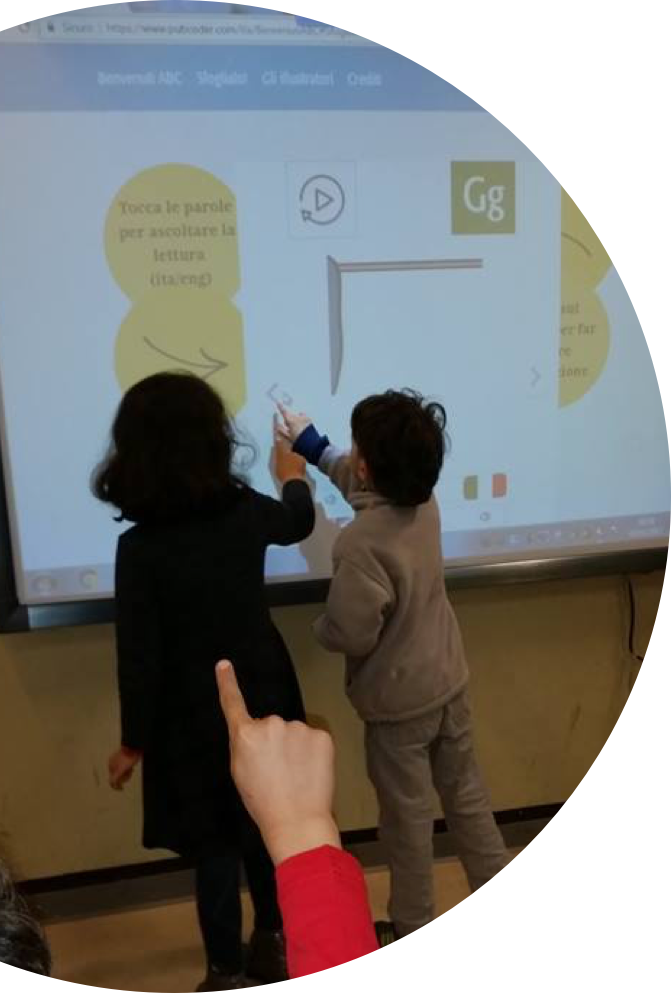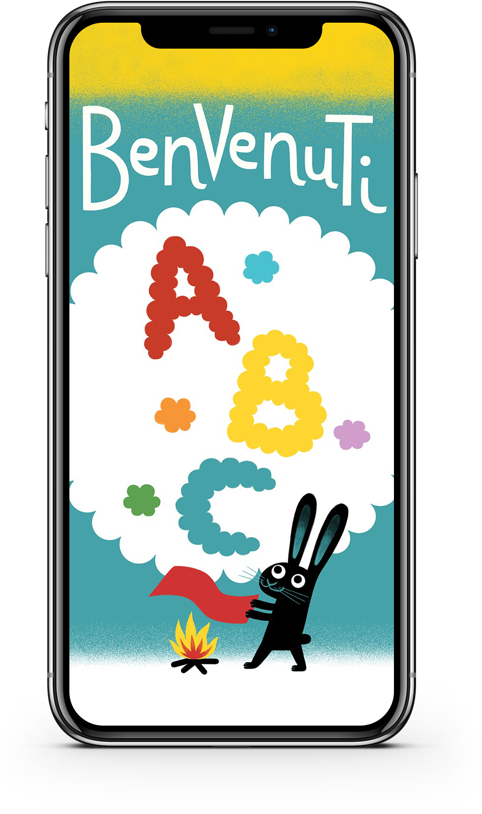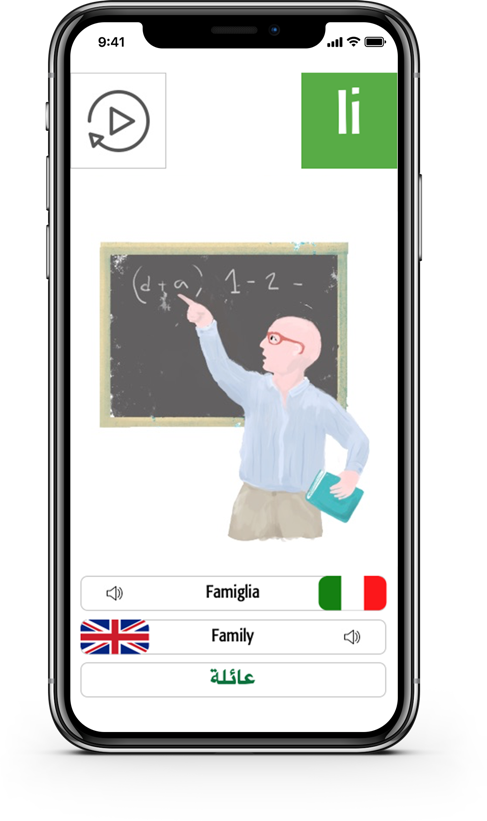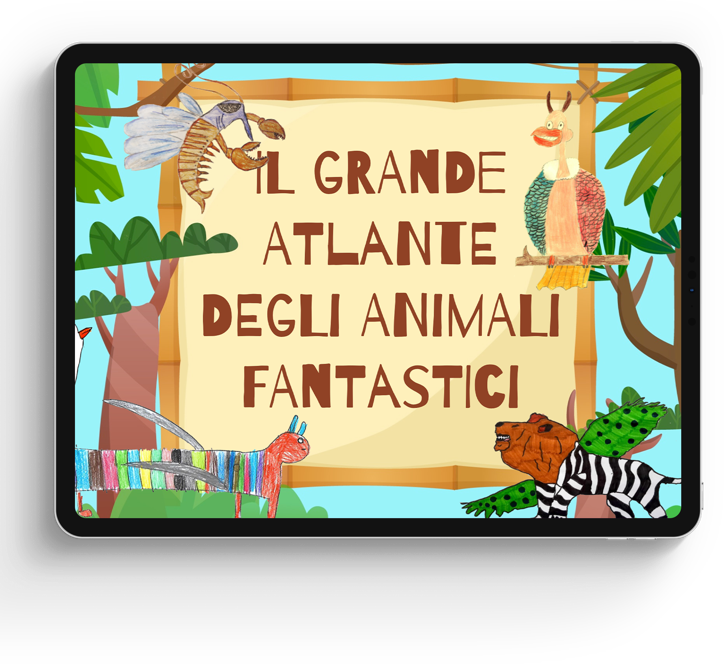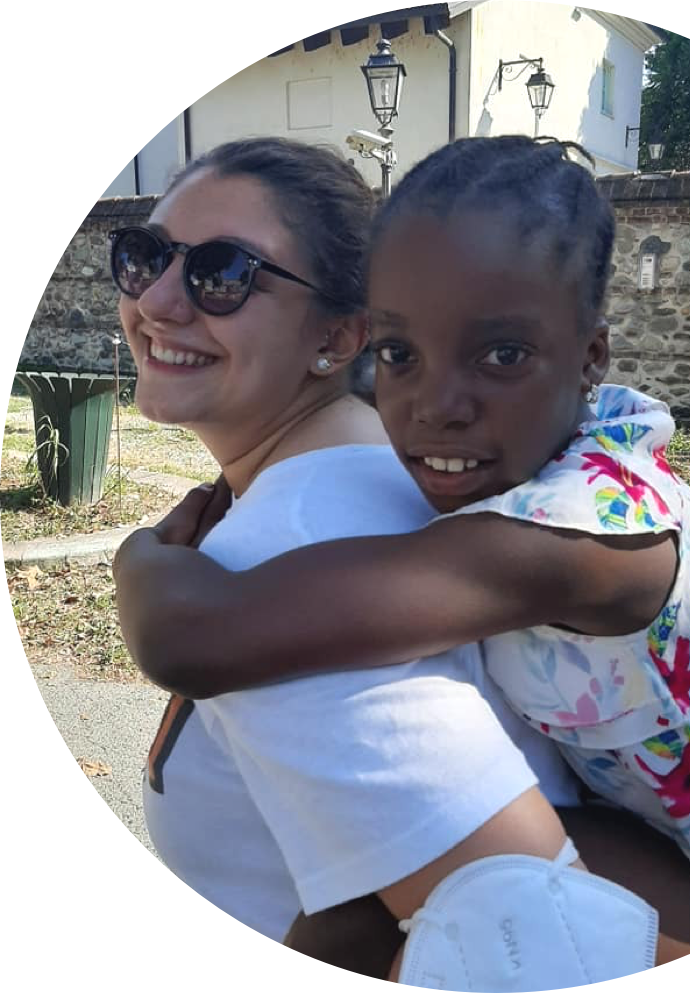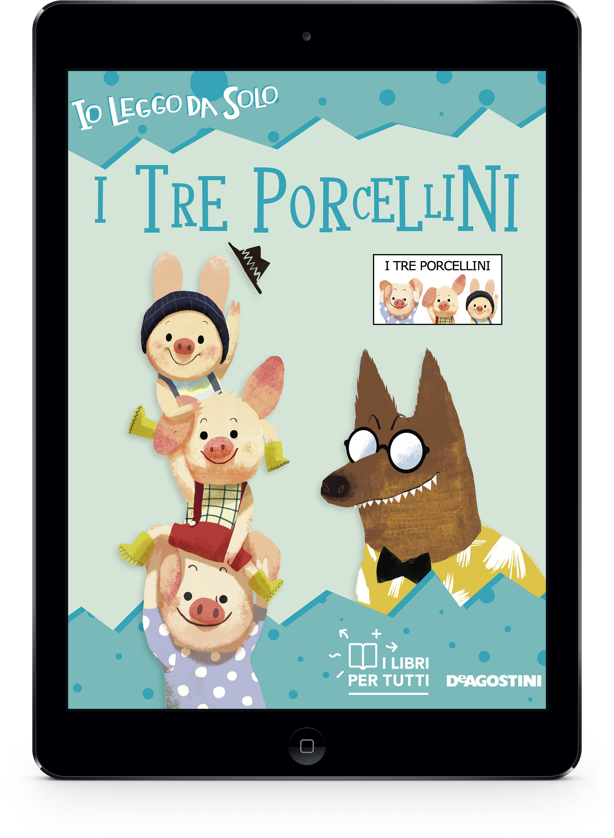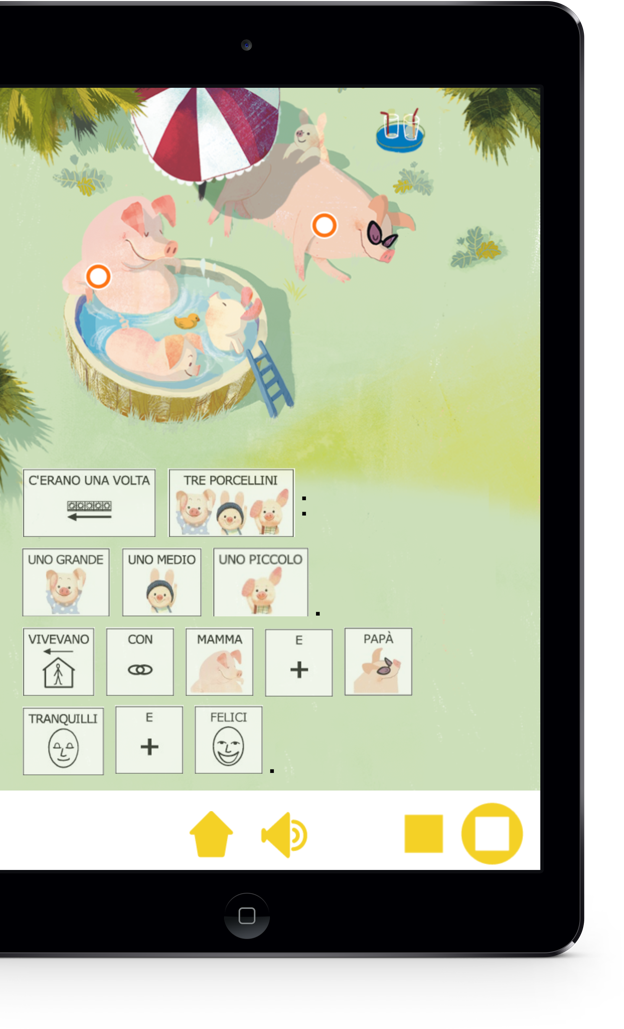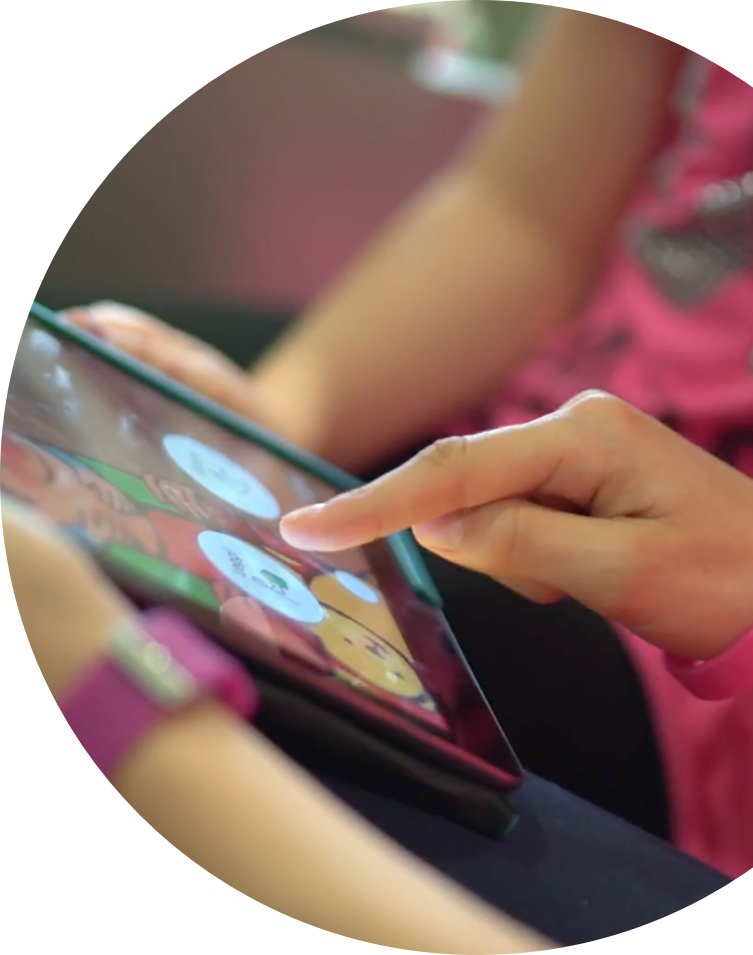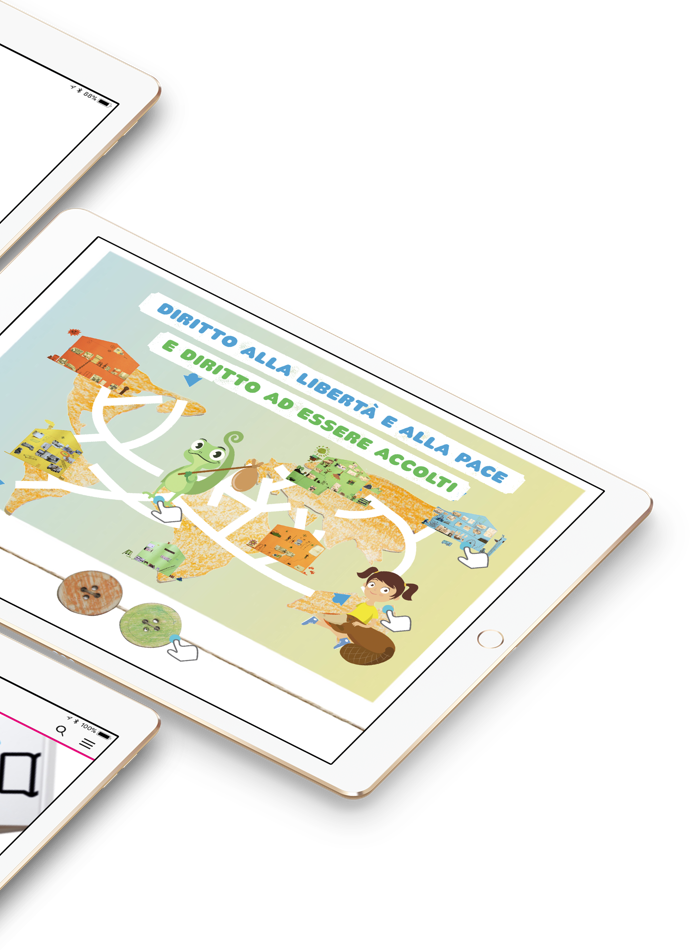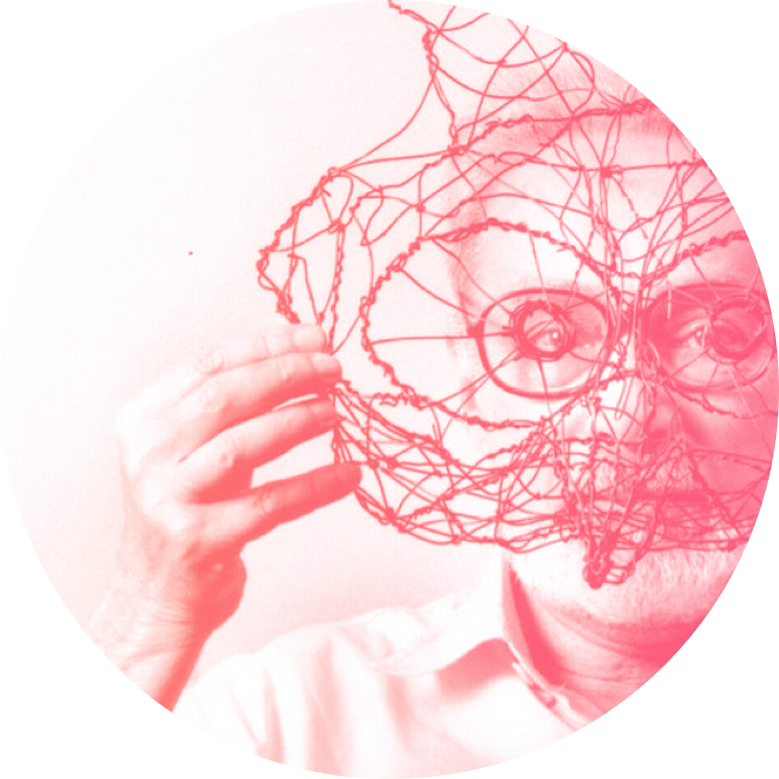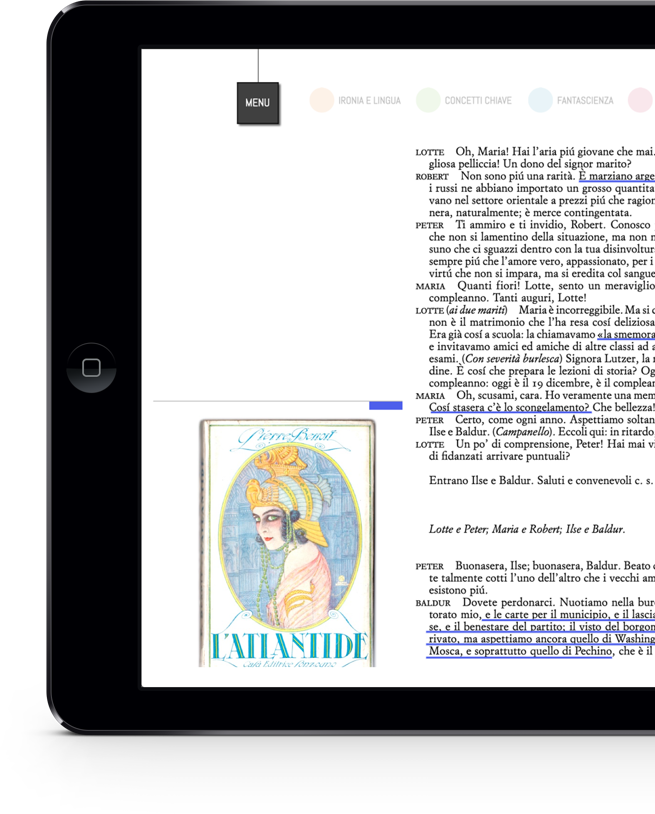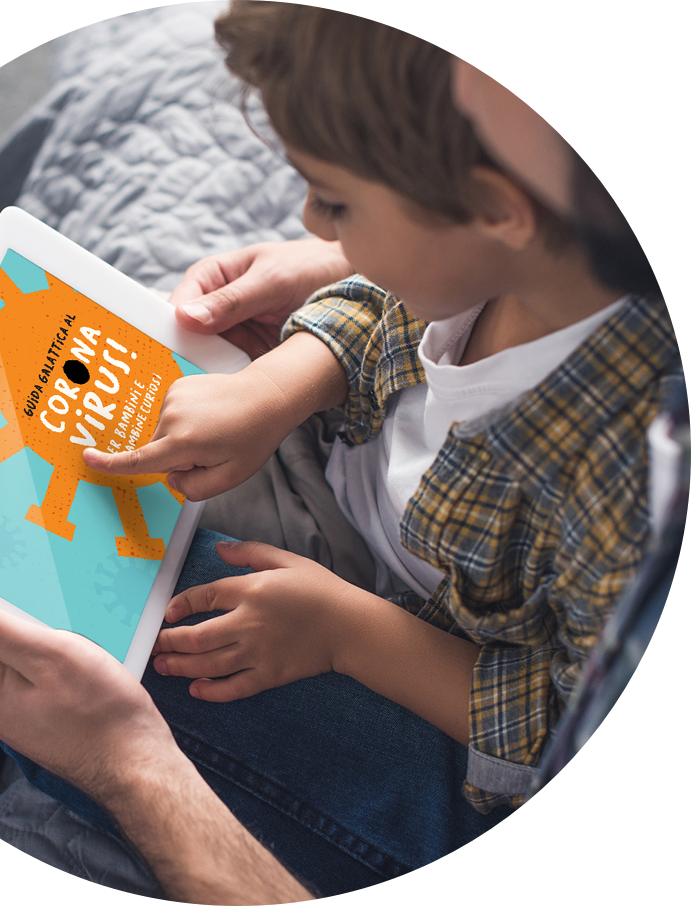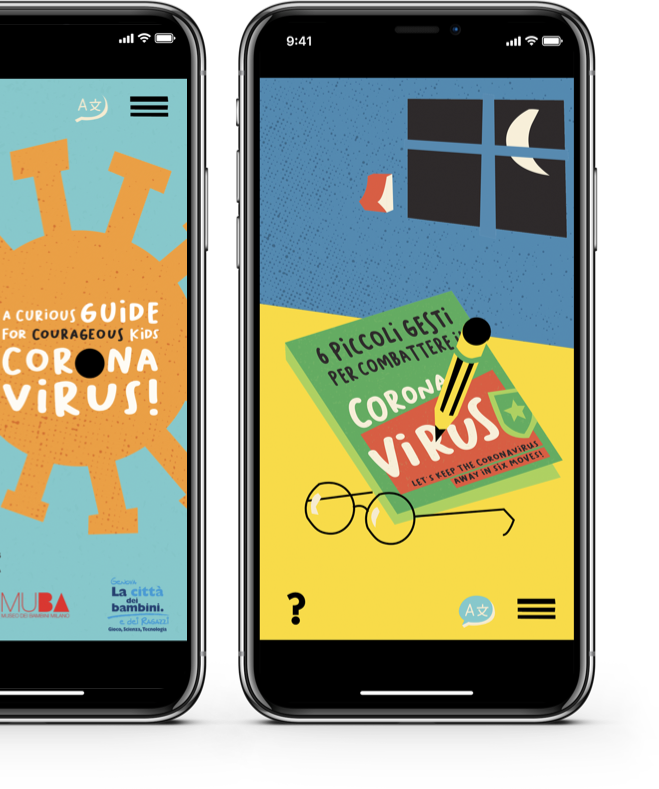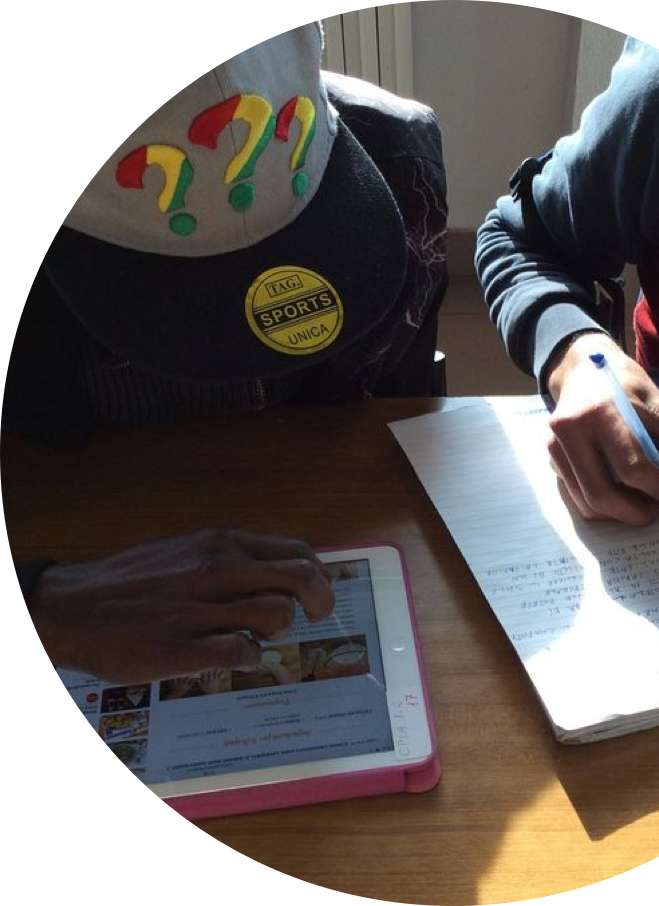BENVENUTI ABC
Welcoming refugee children
…we founded that there were 11 million children in the world who live as refugees far from their
country
of origin and that refugee children are exposed to violence of all kinds. They are enlisted by armed
gangs or terrorist groups and sometimes disappear into thin air. And then there are the children of
Syrian refugees. Their plight was brought home by the awful picture of Aylan, the three-year-old
child
who died on the beach in Bodrum.
It seemed evident that we should replicate what Caspar and Anna did, and ask the Italian creative
community to help us make an essential dictionary with interactive animation and audio in
Italian
and
English.
We launched a "call for creatives", and more than 120 illustrators and creators
designed, animated,
and
in some cases learned how to work with digital for the first time. Then came the translations, the
voices, the artists, the assembly, a website and an app for Apple plus one for almost all other
smartphones that have Android. Today, anyone can download for free an illustrated dictionary
of
nearly
200 interactive boards and can use it on a browser on a tablet or smartphone.
This dictionary is for all the volunteers, educators and teachers who greet migrants every day. And
it
seemed obvious that we immediately needed to open a dialogue with "Fondazione Migrantes", a
Foundation
committed to welcome refugees, and work with them on the project to put something useful into the
hands
of the volunteers and the children.
Benvenuti ABC is an
excellent digital product but what's even better is that within the space of a few
months so many professionals from outside the migrant reception world have decided to dedicate their
time and their talent to the community." During the first public presentation of Benvenuti ABC in
the
historic building on Cottolengo street in Turin, where every day dozens of people come looking for
help
that ranges from accommodation for the night to an explanation of Italian bureaucracy, we spread a
white
sheet on a wall. We screened our work in front of dozens of illustrators, volunteers and
journalists. It
was beautiful because we all felt the warmth of many small things coming together; we
realized that
you
could do extraordinary things if you work together and move in the same direction. Many
people
raised a
hand and proposed ideas to make it better by adding new words and including other languages etc.
Then we made two other versions of Benvenuti ABC, always collaborating with creatives and teachers to
add new words, animated images and audio to the latest versions. Two Greek teachers in 2017
led the
construction of the Greek version. The situation of migrants in
Greece is
terrible, there are over
40,000 refugees stranded in the five reception camps, including that of Moria where the environment,
especially for minors accompanied, it is inhumane.
In Turin, we have a large Chinese community. The manager of a large public school asked us to work
with
his teachers to build together a version dedicated to their community.
Children who had difficulty
communicating with their classmates thus conducted a whole lesson in front of an interactive
whiteboard
explaining to their classmates how to pronounce everyday words in Chinese, learning them together in
English and learning to say them better and better in Italian.
Benvenuti ABC allows a quick view of common words, numbers and colours, establishing quick
comparisons
with equivalent words in our language. A real added value is the ability to listen to the
pronunciation
of words; also, the use of animations facilitates a more relaxed atmosphere and provides a useful
tool
for educational needs. Giving value and meaning to the knowledge of languages for foreign students
is a
driving force of integration.
120
Illustrators and creators






